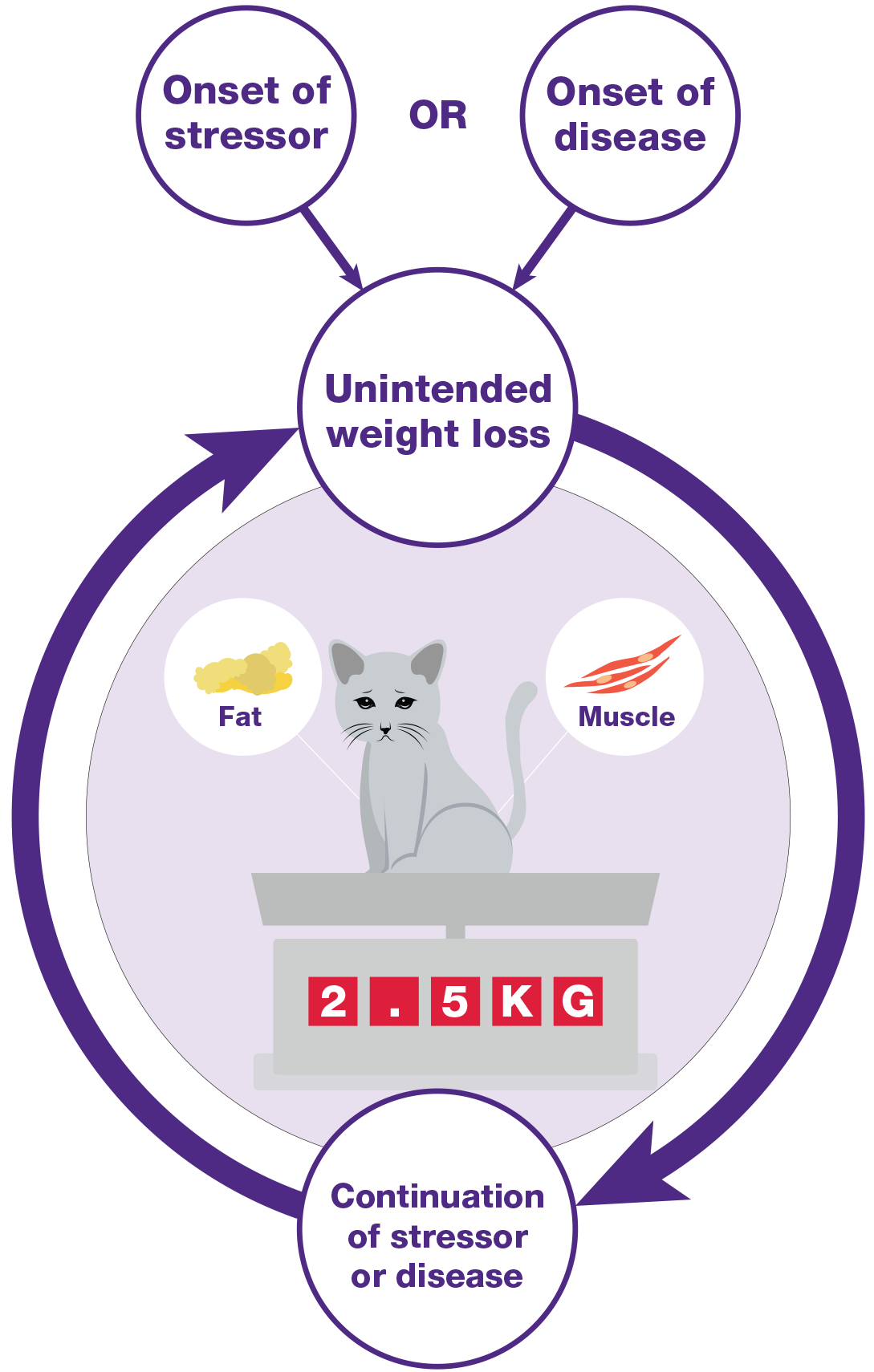Hyperthyroidism





Unintended weight loss in cats is a clinical sign seen with various underlying causes
Asking the right questions can make the difference for the cats in your practice. While there are often subtle changes that the cat owner may or may not have noticed, early detection and action can help manage unintended weight loss while you diagnose the underlying cause.
Prolonged inadequate nutrition may be more detrimental to the patient than the underlying cause of their weight loss1
Therefore, both identifying weight loss and diagnosing the underlying cause are important. Once changes in eating behavior, body weight, and body condition have been identified and discussed with the cat owner, the tailored diagnostic investigation is initiated, guided by a thorough history and physical exam.
Some of the more common underlying diseases could be2-4
Chronic kidney disease
Inflammatory bowel disease
Neoplasia
Pancreatitis
Liver failure

Mirataz is indicated for the management of weight loss in cats.
Important Safety Information
Mirataz® (mirtazapine transdermal ointment) is for topical use in cats only under veterinary supervision. Do not use in cats with a known hypersensitivity to mirtazapine or any of the excipients. Do not use in cats treated with monoamine oxidase inhibitors (MAOIs). Not for human use. Keep out of reach of children. Wear gloves when handling/applying, wash hands after and avoid contact between the treated cat and people or other animals for 2 hours following application. Use with caution in cats with hepatic and kidney disease. Cat’s food intake should be monitored upon discontinuation. Safety has not been evaluated in cats less than 2 kg, less than six months of age or in breeding, pregnant or lactating cats. The most common adverse reactions observed during clinical trials were application site reactions, behavioral abnormalities (vocalization and hyperactivity) and vomiting. For product label, including complete safety information, click here.
References
1. Agnew W, Korman R. Pharmacological appetite stimulation: rational choices in the inappetent cat. J Feline Med Surg. 2014;16(9):749-756.
2. Pittari J, Rodan I, Beekman G, et al. American association of feline practitioners. Senior care guidelines. J Feline Med Surg. 2009;11(9):763-778.
3. Laflamme DP. Nutrition for aging cats and dogs and the importance of body condition. Vet Clin North Am Pract. 2005;35(3):713-742.
4. Baez JL, Michel KE, Sorenmo K, et al. A prospective investigation of the prevalence and prognostic significance of weight loss and changes in body condition in feline cancer patients. J Feline Med Surg. 2007;9(5):411-417.

US Patent 10,603,272
Mirataz® is a registered trademark of Dechra Ltd.
Interesting links
Here are some interesting links for you! Enjoy your stay :)Pages
- A little weight loss can be a big deal
- About Feline Weight Loss
- Click to learn how easy it is to apply Mirataz.
- Dosing and Administration
- Efficacy
- Fan & Follower Policy
- For Cat Owners – Video
- Frequently Asked Questions
- Home
- Learn how to identify changes in your cat’s habits.
- Mechanism of Action
- Mirataz News
- Mirataz PI
- Mirataz Thank You
- Mirataz Thank You Digital Tool Kit
- Mirataz® (mirtazapine transdermal ointment)
- Resources
- Safety
KindredBio proudly supports
Rabies Free Africa

